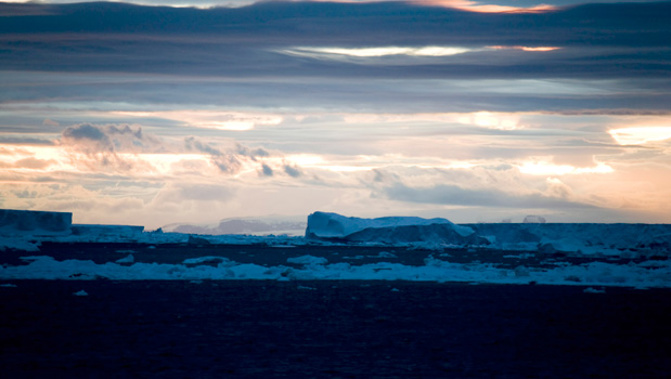
Environmentalists have hit out at a 25-nation union for failing to create in Antarctica what would have been the largest marine protected area on Earth.
Proposals to establish the three Antarctic ocean sanctuaries – including the European Union's 1.8m sq km Weddell Sea marine protected area – were tabled at the Commission for the Conservation of Antarctic Marine Living Resources' (CCAMLR) meeting in Hobart last week.
But without support from Russia, China and Norway, the commission couldn't reach a unanimous vote.
It would consider the three sanctuaries - in East Antarctica, in the Weddell Sea, and in the Western Antarctic Peninsula – again next year.
Frida Bengtsson, of Greenpeace's Protect the Antarctic campaign, accused the three nations of derailing the talks.
"Rather than put forward reasoned opposition on scientific grounds, some delegations, like China and Russia, instead deployed delaying tactics such as wrecking amendments and filibustering, which meant there was barely any time left for real discussion about protecting Antarctic waters," she said.
"The only glimmer of hope came when the small vulnerable marine ecosystems identified by Greenpeace on our recent expedition were approved for protection."
The commission agreed that seven new vulnerable marine ecosystems would be included on its registry – four sites in the western Antarctic Peninsula and three sites in the South Orkney Islands.
Its scientific committee also further developed its approaches to managing data-limited fisheries, and agreed to a new surveillance project to monitor illegal fishing in the region.
Two years ago, New Zealand played a key role in creating the Ross Sea sanctuary, a 1.5 million square kilometre protected area in the Antarctic Ocean.
It was meant to be the first in a large network of sanctuaries in the region.
"We're running out of time and scientists are clear that we need to create marine sanctuaries across at least 30 per cent of our oceans by 2030, to protect wildlife, ensure food security for billions and help to tackle climate change," Bengtsson said.
"In 2009 the Commission agreed a mandate to create a network of sanctuaries, but since then their diplomatic efforts seem to be more concerned with expanding fisheries than with conservation.
"If bodies like the Antarctic Ocean Commission continue to fail in their mandate to conserve the ocean, they're clearly unfit for purpose and aren't part of the solution.
"Instead we must look to the historic negotiations taking place at the UN towards a Global Ocean Treaty."
In September, governments at the UN began negotiations towards a Global Ocean Treaty which would cover all oceans beyond national borders.
The negotiations were the result of a decade-long process and could conclude as early as 2020.
This treaty would provide the framework for the creation of a network of ocean sanctuaries across 30 per cent of the world's oceans by 2030, which scientists say is imperative to protect wildlife and help to tackle climate change.
Take your Radio, Podcasts and Music with you








